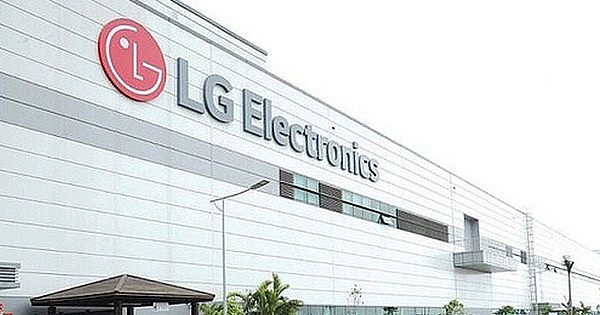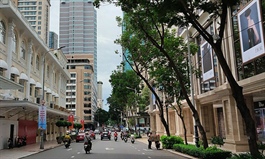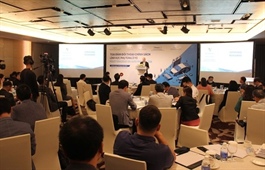LG refuses to sell Haiphong smartphone plant
LG refuses to sell Haiphong smartphone plant
Despite shutting down its smartphone business due to long-term losses, LG Electronics Vietnam refuses to find a buyer for its Haiphong smartphone factory for $90 million.

LG refuted rumours that it is looking to sell its Haiphong smartphone plant
|
At the meeting with leaders of the Ministry of Planning and Investment's Foreign Investment Agency on April 14, Jung Hai Jin, general director of LG Electronics Vietnam Haiphong in Haiphong's Trang Due Industrial Zone confirmed that the company is not looking for a buyer for its Haiphong smartphone factory.
He said that it would restructure the major business lines of LG that would have no impact on LG Electronics' operation in Haiphong and the employment of workers there. He reiterated that LG is not looking to sell its factory for $90 million.
The LG Electronics factory in Haiphong was invested $1.5 billion to manufacture smartphones, TVs, air conditioners, vacuum cleaners, and washing machines. It also provides after-sales services, installation, maintenance, repair, and other services for all LG products.
Earlier, after announcing to withdraw from the smartphone business, LG Electronics was reported to be closing down production plants in Haiphong (Vietnam), Taubate (Brazil), and Qingdao (China) by Business Korea.
LG cut losses from the smartphone
The smartphone business that the South Korean electronics giant LG is exiting to focus on other growing businesses, has been reported to have been making losses despite ranking high in some markets. The company expects to fully quit the mobile phone business by the end of July, according to a press statement in early April. Dropping out of the fiercely competitive sector would allow LG to focus on growth areas such as electric vehicle components, connected devices, and smart homes.
According to Reuters, LG’s smartphone division has logged nearly six years of losses totalling some $4.5 billion.
In the US, LG is the third-biggest smartphone brand, making up about 11 per cent of all smartphone sales in the country last year, according to analytics firm Counterpoint Research. In recent years, its flagship models suffered from both software and hardware mishaps which combined with slower software updates to see the brand steadily slip in favour. Analysts have also criticised the company for its lacklustre marketing compared to Chinese rivals.
Meanwhile, other well-known mobile brands such as Nokia, HTC, and Blackberry have also fallen from lofty heights but have yet to completely disappear.
While rival Chinese brands such as Oppo, Vivo, and Xiaomi do not have much of a presence in the US due to trade tensions, these Chinese brands and Samsung’s low- to mid-range product offerings are set to benefit from LG’s absence in Latin America, analysts said.
LG Electronics began to show intentions to withdraw from the mobile phone business a month ago when the CEO said there would be a significant change in the company’s operations. LG Electronics is also said to have cancelled plans to sell a “rollable” smartphone – which was launched at the Online Consumer Electronics Show in January.





















